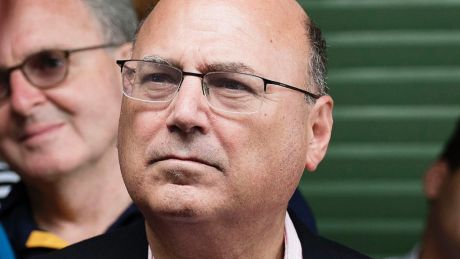
Fail hard, fail fast: innovation ministry dance continues
What will happen to Turnbull's innovation agenda with this third minister in as many years?

What will happen to Turnbull's innovation agenda with this third minister in as many years?

Uber will share its data - starting with Sydney, Manila, Washington and Boston - in a bid to make good with city planners.

Automakers, tech companies and glass manufacturers are teaming up to turn the iPhone display into a car windshield that can show ads, directions and vehicle information to the person behind the wheel.

Kimbal Musk - Elon's brother - just opened a shipping container farm compound in New York City.

Toyota Motor plans to spend years designing cars in which people retain a large measure of control, since the goal of turning all driving decisions over to computers seems too dangerous for now.

We'll be driving more, using electric cars, along with more renewable energy - and nuclear energy over the next 25 years. But our addiction to coal will remain, while gas will emerge as our main source of energy.

Robot K-2SO is the undisputed star in Star War's latest installment , outacting the actors - a sign of things to come in our automated economy?

Amazon is exploring the use of giant airships to serve as mobile, flying warehouses that could help the online retail giant deliver more of its goods by drone.

TaskRabbit was founded in 2008 with a big idea. On the company's website and app, people make money by assembling strangers' Ikea furniture or cleaning their bathrooms

The embattled stem cell biotech has seen a major US drug company becoming a cornerstone investor and taking an option over two of its main products.

Corporate jargon becomes more bizarre each year.

Gilman Wong has been forced to step aside as chief executive of cancer treatment outfit Sirtex Medical following shareholder demands for an investigation into the sale of shares two months ago.

Michael J. de la Merced contributed reporting.

Cancer treatment group Sirtex Medical was questioned by the stock exchange over weak sales a week before the company confirmed that sales growth had all but disappeared.

The warning signs were there for all to see ahead of a trading update last week that slashed hundreds of millions of dollars off the market worth of biotech outfit Sirtex.

Hate doing laundry? This Laundroid doesn't only wash and dry garments, but also sort, fold and neatly arrange them. Now its Japanese inventor has won $71 million from investors including Panasonic, and is preparing to take the business public.

At 26, John Collison, the co-founder of online payments service Stripe, has become the world's youngest self-made billionaire, according to Forbes.

James Packer's Israeli secret is not so secret any more, with Australian business people flocking to Israel in unprecedented numbers to learn about the "Start-up Nation".

What's worse, a phone that explodes in your face or a drone that falls from the skies?

Find out how they get that special sauce in the business DNA.

More than 85 per cent of Tesla shareholders have voted in favour of its controversial SolarCity deal.

The float of messaging phenomenon Snapchat is likely to make its chief executive Evan Spiegel and his fiancee Miranda Kerr one of the world's richest young couples.

Excitement and a century-old industrial company don't usually mix in the minds of Silicon Valley talent.

It is working in one of the hottest areas of biotechnology research - antibiotic resistance - and after $20 million and years of development work, SpeeDX, is launching sales in Europe

It all started in a yellow suburban house in Brisbane with a single plastic sewing machine, a blog, and a hope that girls somewhere would like these patterned tights.

Uber is under the ATO's watch on its tax affairs.

Public service departments "too nervous" to innovate, say start-ups.

Forget singing or acting your way to riches. Tech entrepreneurs dominate the list of Australia's young and wealthy.

It may take only one hot tech firm float to flop badly and 2017 could be the year the dotcom bubble 2.0 finally goes pop.

Lower taxes on patented inventions, extended patent protections and pooled intellectual property by universities are among a raft of proposals put forward to give the biotechnology sector the chance to catch up globally